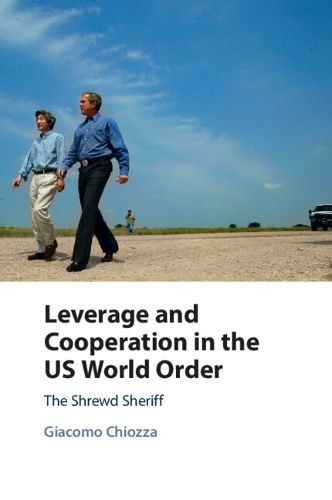Readings Newsletter
Become a Readings Member to make your shopping experience even easier.
Sign in or sign up for free!
You’re not far away from qualifying for FREE standard shipping within Australia
You’ve qualified for FREE standard shipping within Australia
The cart is loading…






Since the end of World War II, the United States has maintained a unique system of partnerships and alliances, known as the US world order. Within this order, it has sought both compliance from, and consensus with, its partners. Sometimes it has achieved both, sometimes one but not the other, and sometimes neither. What accounts for this variation in hegemonic leadership? Giacomo Chiozza suggests that the answer depends on the domestic political institutions that structure US relations with the incumbent leaders in the partner nations. Domestic political institutions that foster political successors and allow for regular and flexible channels of leadership turnover make it easier for the US to sustain friendly relations. However, unexpectedly, institutions that allow for regular and flexible channels of leadership turnover also create domestic political incentives that foster the attainment of better governance and more respect of human rights.
$9.00 standard shipping within Australia
FREE standard shipping within Australia for orders over $100.00
Express & International shipping calculated at checkout
Since the end of World War II, the United States has maintained a unique system of partnerships and alliances, known as the US world order. Within this order, it has sought both compliance from, and consensus with, its partners. Sometimes it has achieved both, sometimes one but not the other, and sometimes neither. What accounts for this variation in hegemonic leadership? Giacomo Chiozza suggests that the answer depends on the domestic political institutions that structure US relations with the incumbent leaders in the partner nations. Domestic political institutions that foster political successors and allow for regular and flexible channels of leadership turnover make it easier for the US to sustain friendly relations. However, unexpectedly, institutions that allow for regular and flexible channels of leadership turnover also create domestic political incentives that foster the attainment of better governance and more respect of human rights.